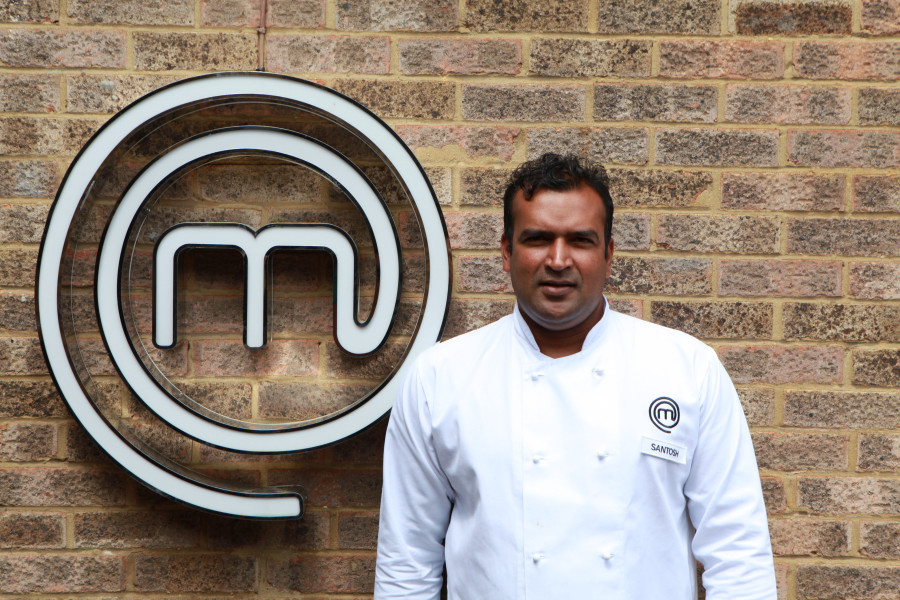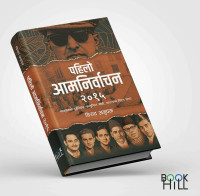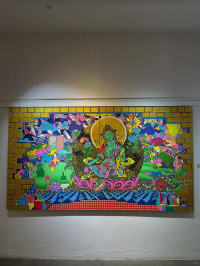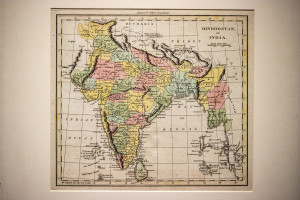Culture & Lifestyle
‘Never shy away from thinking outside the box’
Santosh Shah, a London-based Nepali origin chef, shares his culinary journey, his aspirations and his excitement on being selected for UK’s MasterChef: The Professionals.
Tsering Ngodup Lama
Born and raised in Karjanha village in Siraha district, Santosh Shah is a London-based chef. Shah started his culinary journey in the UK working at Dishoom, an Indian chain restaurant, and since has worked with Michelin-starred Atul Kochhar, at Kochhar’s restaurant, Benares, and was also the executive chef at The LaLit London. He is now the head chef at the famed Cinnamon Kitchen, also in London.
Shah was recently announced as one of the participants of UK’s MasterChef: The Professionals, making him the only Nepali chef to partake in a major culinary show.
In a conversation with the Post’s Tsering Ngodup Lama, Shah shares his culinary journey and his hopes and aspirations as a participant of MasterChef: The Professionals.
You said in an interview that you are the only chef in your circle of old friends—most of whom are engineers and doctors. What made you choose this line of work?
I come from a very small and humble family in Nepal, and when I turned 14, I moved to India to work in the culinary industry because I had to support my family financially, and the industry was a means to achieve that. For the first three months, I worked as a kitchen porter at a restaurant in Gujarat, India, and I was then promoted to a Tandoor commis chef. That role made me realise how much I enjoy cooking and I realised that this was my calling and have been pursuing it since. I am grateful that what started as a means to support my family in Nepal turned into my passion.
Who are your biggest influences as a chef?
I credit my career success to my mentors. I found working under Chef Vivek Singh, a fine dining connoisseur and the CEO of five London-based modern-Indian restaurants, a great learning experience. I am also very grateful for the guidance of Bella Giordimaina, a friend from Malta, extremely valuable. It is due to their guidance that my career blossomed and I gained confidence in my abilities.
One of your key culinary focuses has been promoting Nepali cuisine in the global culinary landscape. What do you think will it take for Nepali cuisine to go international?
For various reasons, Nepali cuisine isn’t as well known as Indian or Chinese cuisines. Our cuisine does not lack in flavours, ingredients, or techniques, and I genuinely believe it’s one of those hidden gems that’s yet to be discovered. It is still a novel concept for international cuisine, as people don’t know what to expect from it.
I believe Nepali cuisine is waiting for the right platform to be introduced to the global audience. For the past few years, I have been researching ways to introduce it to people in a way that our cuisine retains its authenticity while also being more accessible to food lovers. I see a lot of scope, as all the native Nepali dishes are easy to cook, digest, and healthy.
And now you have a platform to showcase Nepali cuisine as one of the participants of this year’s Masterchef: The Professionals. How are you going to use this opportunity?
Absolutely. I have been dreaming of participating in the show for years, and I am very excited to finally have the opportunity to do so. I know that this is the best and the biggest platform I’ll ever get to showcase my native cuisine, and I intend to make the best use out of it.
Ever since I got the confirmation that I’d be participating in the show, I have been spending hours in preparation for the show.
If I am not specifically required to experiment, I am planning to cook only Nepali ingredients for most of my dishes. MasterChef has a wide audience worldwide, and I am planning to make the best use of this exposure. Apart from the hopes of introducing Nepali cuisine to the global audience, I also hope to inspire young Nepali chefs to follow their dreams and to not give up.
You must be feeling a lot of weight on your shoulders.
Yes, of course. The fact that I’ll be competing with the best professional chefs in the country is a big deal. But I have followed the show for years, and have been preparing myself for the last five years for an opportunity to be a part of the show. I have dedicated a lot of time to analyse every episode that has aired in the last ten years, including the contestant’s strategies, winning dishes, and judges’ feedback. I have been working really hard by preparing, practising, strategising, and have been taking notes day and night.
I am very excited and I feel ready to make my mark in the show.
Nepal doesn’t seem to produce many internationally renowned chefs. Why do you think that is?
I don’t think there’s a dearth of talent in Nepal’s culinary industry. But what our chefs lack is the will to experiment and challenge himself and think out of the box.
Another thing that I have noticed is our chefs aren’t very confident about our own cuisine and that, I think, is one of the reasons why our cuisine isn’t well known in the global stage. Our chefs have to believe in themselves and their native cuisine. It is difficult to move forward if you don’t have faith in your own roots.
What do you have to tell young Nepalis who want to get into the culinary industry?
Being a chef is a wonderful feeling. The nature of the job is such that you will get feedback instantaneously, be it good or bad—and that pushes you to do better somehow. I would suggest young Nepali chefs to gain as much hands-on experience as possible, have confidence in their abilities, be honest with themselves, work hard, and never shy away from thinking outside the box. If they do that, nothing will stop them from reaching great heights.




 27.41°C Kathmandu
27.41°C Kathmandu















